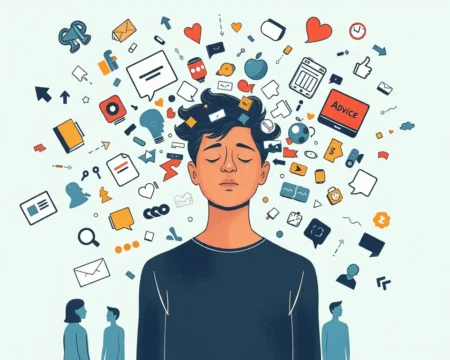New research from Northeastern University indicates that self-help groups, when combined with medication, dramatically increase the likelihood of successful completion of opioid addiction treatment. The study, which analyzed data from over 150,000 patients, found that those who attended self-help groups alongside medical treatment were significantly more likely to complete their prescribed medication regimens, a critical factor in long-term recovery. This finding highlights the vital role of peer support in combating the opioid crisis.
The Power of Peer Support in Opioid Recovery
The study revealed a striking difference in treatment completion rates. More than half of the patients who participated in self-help groups completed their medication treatment, compared to only 19% of those who did not attend these groups. This represents a 25% increase in the likelihood of completing opioid addiction treatment when combining medication with support groups, demonstrating the potent effect of peer-based support. Muhammad Noor E Alam, a Northeastern professor and lead investigator on the study, emphasizes the importance of completing treatment, stating that premature discontinuation makes individuals vulnerable to overdoses.
Understanding the Role of Self-Help Groups
Self-help groups, often facilitated by health professionals or peers in recovery, provide a safe space for individuals facing similar challenges to connect and support each other. These groups foster a sense of community, reducing the isolation often experienced by those struggling with addiction. Participants can share their stories, gain encouragement, and learn coping strategies from others who understand their experiences. This shared understanding and empathy are crucial components of the recovery process.
The Intersection of Medication and Peer Support
While medications like buprenorphine, methadone, and naltrexone are effective in treating opioid addiction by managing withdrawal and reducing cravings, many individuals struggle to adhere to treatment plans. The Northeastern study underscores that medication alone is often insufficient. Combining medication with the consistent support and encouragement found in self-help groups significantly enhances treatment adherence and, consequently, long-term recovery prospects.
Addressing Disparities
Research has also identified differences in the effectiveness of self-help groups based on race, ethnicity, and sex. For instance, the association between self-help group participation and treatment completion was found to be highest among Black men, highlighting the need for culturally sensitive approaches to addiction treatment. This emphasizes the importance of tailored interventions that consider the unique needs of different populations.
Benefits of Self-Help Groups in Addiction Recovery
Beyond increased treatment completion rates, self-help groups offer numerous benefits that contribute to successful recovery. These include:
- Reduced Relapse Rates: Studies have consistently demonstrated that participation in peer support and mutual support groups significantly reduces the risk of relapse. The ongoing support and accountability within these groups help individuals maintain their sobriety.
- Increased Abstinence: Peer support has been shown to help individuals achieve and maintain abstinence from substances. The shared goal of sobriety, coupled with the understanding and encouragement of peers, strengthens individuals’ commitment to recovery.
- Improved Mental Health: Participating in self-help groups has been linked to improved mental health outcomes, such as reduced symptoms of depression and anxiety. The social connection and sense of belonging fostered by these groups can combat the isolation and negative feelings that often contribute to substance use.
- Enhanced Coping Skills: Peer support groups provide a platform for learning and practicing effective coping strategies. Members share tips, techniques, and real-life experiences that help individuals navigate challenges and manage cravings.
- Building Community: These groups create a sense of community for people who are recovering from addiction, offering vital support to ensure people don’t feel alone or isolated, which are risk factors for relapse.
- Demonstrating that recovery is possible: Peer support provides tangible evidence that recovery from addiction is achievable, giving hope and encouragement to those who may feel that sobriety is out of reach.
The Role of Relapse Prevention
Relapse is a common challenge in addiction recovery. It’s often viewed as part of the process. Relapse prevention is crucial to long-term success, and self-help groups play a vital role in this process. These groups provide ongoing support and a structured environment where individuals can practice relapse prevention skills. Common relapse prevention strategies include:
- Cognitive Behavioral Therapy (CBT): CBT helps individuals identify and manage the thoughts, feelings, and behaviors that contribute to substance use. It is a cornerstone of modern addiction treatment.
- Medications: Medications for opioid use disorder (MOUD), such as buprenorphine, methadone, and naltrexone, are effective in reducing cravings and preventing relapse.
- Monitoring: Regular monitoring, whether through drug tests or check-ins with a healthcare professional, can help identify early warning signs of relapse.
- Social Support: Strong social support networks are essential for maintaining recovery. Peer support groups are an invaluable resource for building these networks.
- Self-Care: Implementing a routine of balanced nutrition, regular exercise, and quality sleep can improve overall well-being and reduce the risk of relapse.
- Identifying Triggers: Recognizing and avoiding triggers (such as places, people, or situations associated with substance use) is a key part of relapse prevention.
- HALT: Recognizing the warning signs of Hungry, Angry, Lonely, and Tired, can help prevent relapse.
The Broader Context of the Opioid Crisis
The opioid crisis continues to be a significant public health issue in the United States, with overdose deaths reaching record highs. The crisis is driven by various factors, including the misuse of prescription opioids, the rise of heroin, and the proliferation of synthetic opioids like fentanyl. Rural areas have been disproportionately affected, facing barriers to treatment like limited access to facilities and greater distances to care.
Addressing the Crisis Through Multimodal Approaches
Effective strategies for tackling the opioid crisis must involve a multi-faceted approach that includes:
- Expanding Access to Medication-Assisted Treatment (MAT): MAT combines behavioral therapy with medications like buprenorphine, methadone, or naltrexone. It is considered the gold standard for treating opioid use disorder.
- Promoting Community-Based Prevention Efforts: Education about the dangers of opioid misuse, safe medication storage and disposal, and harm reduction strategies like needle exchange programs are essential for preventing opioid-related deaths.
- Focusing on Relapse Prevention: Utilizing a combination of therapy, medications, monitoring, and social support to reduce the likelihood of relapse.
- Integrating Self-Help Groups: Incorporating self-help groups into treatment plans is crucial for improving adherence and long-term recovery rates.
- Developing New Medications and Therapies: Ongoing research to create more effective and accessible treatment options is vital.
Conclusion
The Northeastern University research provides compelling evidence for the effectiveness of self-help groups in improving outcomes for individuals undergoing opioid addiction treatment. The combination of medication and peer support significantly increases the likelihood of treatment completion, reduces relapse rates, and improves overall well-being. As the opioid crisis continues to impact communities across the nation, leveraging the power of peer support is essential for fostering recovery and saving lives. These findings emphasize that a comprehensive approach, combining medical treatment with social and emotional support, is key to helping those battling addiction achieve long-term sobriety.










